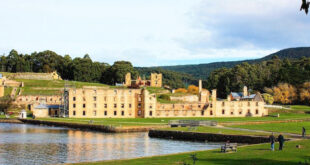Once you have chosen your destination there are quite a few things that have to be done before you hop on that plane. Here's a list of what my partner John and I do before our departure which may be useful for GrownUps who haven't travelled overseas before. We're off to Cambodia, Laos and Vietnam in a fortnight.
Well Beforehand
- Read as much as you can about the places you plan to visit. Use your library and the Internet. This will help you to find the most interesting things to see and do, and give you a more in depth experience.
- Check to see that your passports are valid. Some countries require that the expiry date should not be less than 6 months before they will grant entry.
- Book your accommodation well ahead. You can often get cheaper deals that way.
- Check with your GP as to what kind of vaccinations and medications you may require, or which need updating and whether to take antimalarial medication. Make sure that you have sufficient quantities of any regular medication you may be on to last the journey.
- Make sure you have the right kind of luggage. It needs to be of a good quality. (Several times my travel bag/suitcase zip has given way part way through the journey so I know how essential this is.)
- Arrange medical Insurance. Make sure pre-existing conditions are also covered (there will be a surcharge for this).
- Photocopy your passport, take two separate copies with you, plus email a scanned copy to your email address.
In the weeks leading up to departure:
Money Matters:
- Find out whether ATM's will be readily available in all the places you intend to travel. ATMs offer an excellent way to obtain local currency with a debit or credit card pre-loaded with NZ dollars before you leave home, but ATMs can be scarce in some areas.
- Take more than one money card. I have stood and watched a card being swallowed by an ATM overseas and if this should happen to you, or you lose one elsewhere on your journey, it's important to have another as it can take some time to replace
- Check what kind of currency is acceptable to use. All countries have local currency, but some such as Cambodia, accept US dollars equally. It's better to carry US dollars, or if appropriate Euros or GB Pounds than to try and change NZ dollars into local currency once you're overseas.
- Order your travelling money beforehand through your bank, or pre-order it and arrange to collect it on the day of your departure at the airport, as this is cheaper than going in and just asking for it at the airport on the day of travel.
- Let the bank (where you are a cardholder) know in advance when you will be away so that card use overseas is expedited.
Confirming your Accommodation
- If you've arranged your own bookings, a week before departure send another email to each hotel/homestay you are staying at to re confirm your bookings and to ensure that that they will pick you up from the airport if this was pre- arranged.
Packing
- A few days beforehand do a practice run of packing your suitcase. Work on the principle that the lighter it is the easier it will be to carry/push around. For each item ask yourself: Is this really essential, if not do not take.
- Check what the temperatures will be in each place you visit and plan your wardrobe accordingly. Think layers. We love merino clothing as it is light and doesn't seem to get smelly. In the tropics light cotton clothing is great. You can often buy this very cheaply once over there. It should be respectful of the culture you are visiting. In some places shorts/ sleeveless tops are a not viewed as acceptable for women.
In your hand luggage pack:
- Your passport
- Your tickets and other travel documents
- Your camera, memory cards and charger.
- A photocopy of your passport
- Money and bankcards
- Your travel insurance contact details
- Medications
- A change of clothes
- A torch
- Plug adaptor(s)
- Toiletries including antibacterial hand wash
- Suntan lotion and insect repellent
- Book/Kindle
In your suitcase pack:
- All other clothes and a change of footwear (I always pack a sarong, it can be used as a towel, a shawl, or wrap around skirt)
- A portable clothing line/ washing liquid
- Any other useful personal items such as a swiss army knife and a sewing kit.
- A photocopy of your passport
- A Travel Guide
- Small gifts to give away for souvenirs.
- Allow some room for purchases and presents.
Leave Behind with a relation or friend:
- Your itinerary in case some-one needs to contact you.







Join the Discussion
Type out your comment here:
You must be logged in to post a comment.